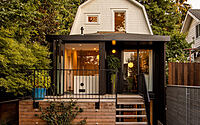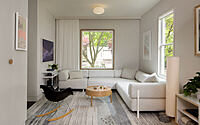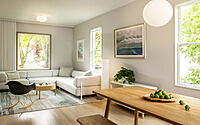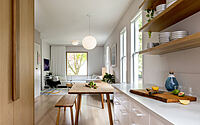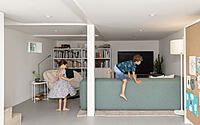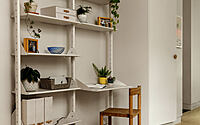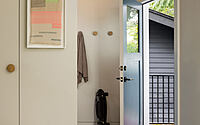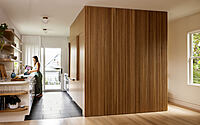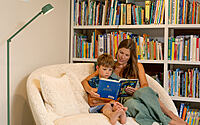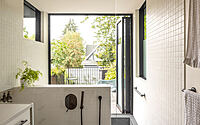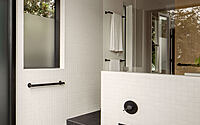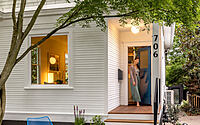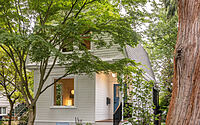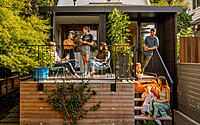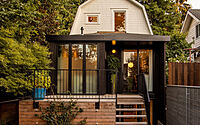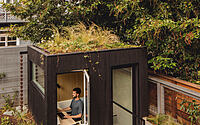Phinney Mini: A Charming Reimagined Two-Story Home
Tucked away in Seattle’s Phinney Ridge neighborhood, surrounded by old-growth trees, is the reimagined two-story home of a young family of four. Dubbed Phinney Mini for its compact footprint and idyllic location, the 1,665 square-foot (155 m2) house was designed by Best Practice Architecture to be a functional, modern and exquisitely detailed living space that celebrates the family’s heritage.
The Best Practice team achieved this by removing the interior walls of the main level and introducing two organizing elements, an entry box and an oak box, that house necessary domestic functions in an elegant and bespoke fashion. In addition, they designed a generous family room, a detached work-from-home office and a pocket door leading to a bathroom with a traditional Japanese soaking tub. Thanks to Best Practice’s expertise, Phinney Mini is now a charming and luxurious home that will be cherished for years to come.

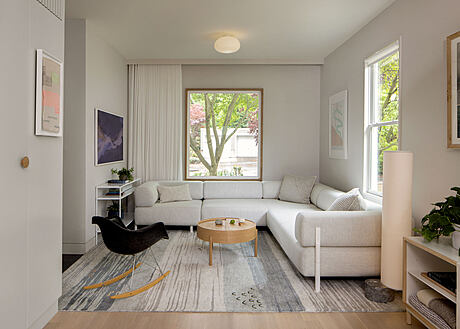
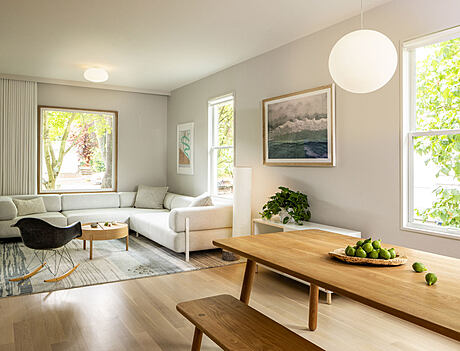
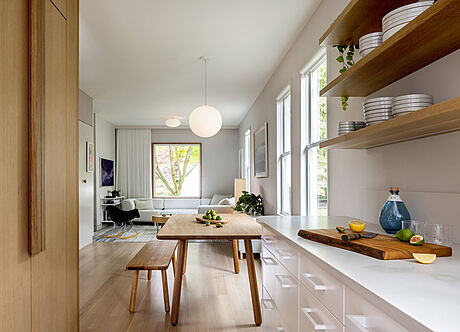
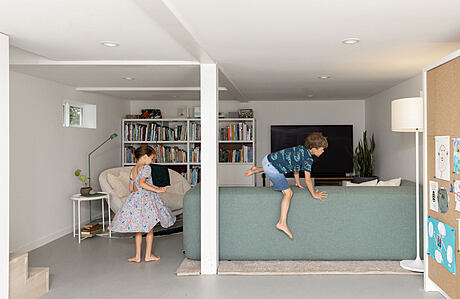
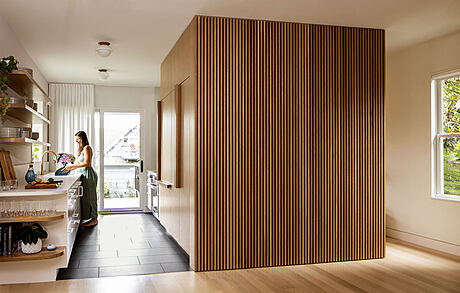
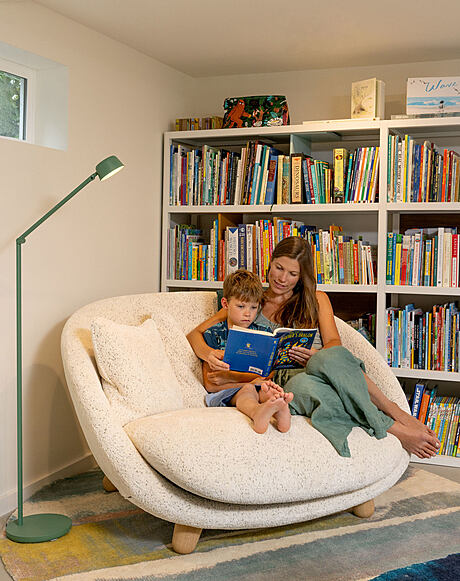
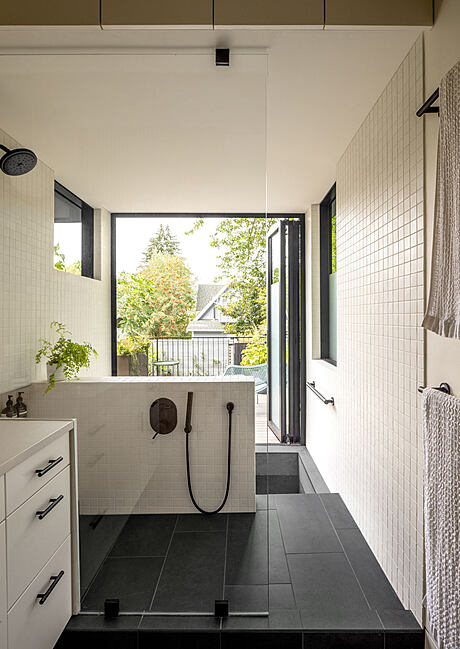
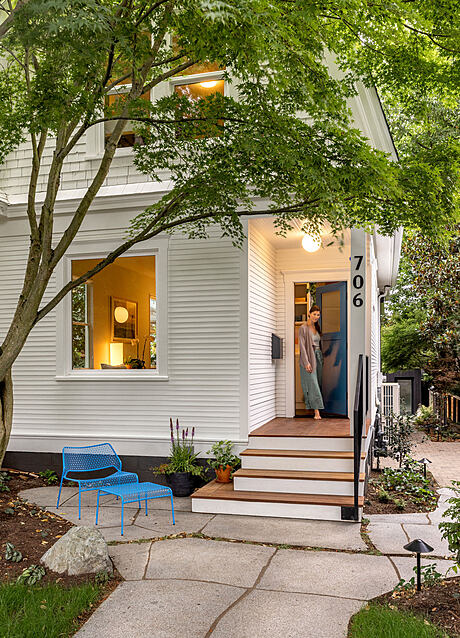
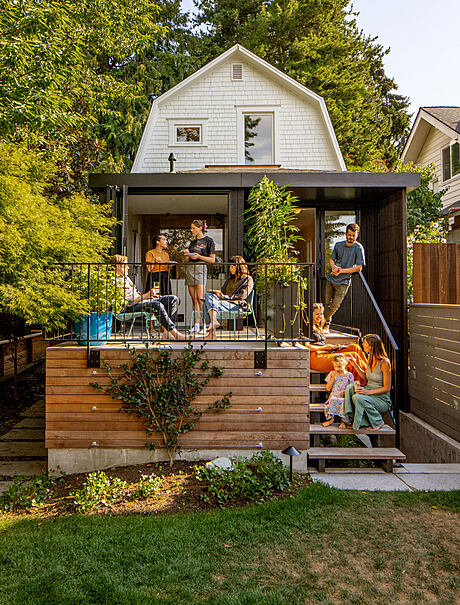
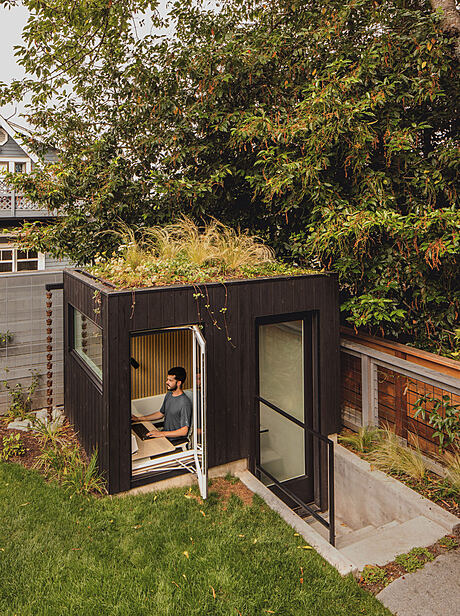
About Phinney Mini
Phinney Mini: Best Practice Architecture Transforms a 1907 Cottage
When a young family outgrew their beloved 1907 cottage in Seattle’s Phinney Ridge neighborhood, they knew they needed to turn to the experts. They put their trust in Best Practice Architecture to create a functional, modern, and exquisitely detailed living space in their 1,665 square-foot (154 m2), two-story home, affectionately known as Phinney Mini for its compact footprint and idyllic location.
Creating a Home for the Whole Family
The home’s original layout featured an unfinished basement, a cramped kitchen and singular bathroom, and two second-floor bedrooms, making it unsuitable for the spirited family of four. The homeowners, having spent their respective childhoods in Maui and Japan, asked Best Practice to modernize the kitchen, design a new family bathroom with a traditional Japanese soaking tub, provide additional living space, and improve connections to their lush backyard.
Designing a Space to Accommodate All Needs
The Best Practice team had a challenge before them: to create a home that would meet the needs of the family, despite the narrow, 25-foot-wide (7.6 m) site. To maximize the space, they began by removing the interior walls of the main level, transforming the layout from a series of small, compartmentalized rooms into a comfortable, open, and functional living space. To give the space an organized, elegant feel, they introduced two organizing elements: an entry box and an oak box. The entry box houses a catchall counter, shoe cabinet, coat closet, and concealed HVAC shroud, while the oak box houses the kitchen pantry and refrigerator, a toilet room, and a pocket door to the bathroom. White oak finishes and vertical battens unify the design while adding texture and warmth.
Making the Most of Limited Space
To create the desired family bathroom, Best Practice reconfigured the kitchen and bathroom layout towards the rear of the house. They made a seemingly counter-intuitive decision by slightly reducing the width of the kitchen, allowing room for a generously sized family bathroom. The new kitchen is smaller in footprint but highly efficient, thanks to the designers’ strategic spatial planning. It opens to the main living area on one end and to a new deck on the other. A 30-square-foot (2.8 m2) micro addition accommodates the requested soaking tub, directly connecting to the outdoors via a folding glass door. A separate toilet room increases comfort and usability for the young family.
Creating an Efficient and Inviting Basement
In the basement, the Best Practice team designed an expansive family room complete with a custom Murphy bed for guests, an enclosed laundry and utility room, concealed under-stair storage, and generous access to the rear yard. To make the most of the small site, the designers also created a detached work-from-home office, nestled into the landscape and partially sunken. With its vegetated roof, the low-slung shed is modest and unassuming, yet a complimentary structure to the compact cottage.
A Home to Cherish for Years to Come
Thanks to the expertise of Best Practice, Phinney Mini has been reimagined. Charming and quaint, luxurious and modern, the home will be cherished for years to come.
Photography by Rafael Soldi
Visit Best Practice Architecture
- by Matt Watts